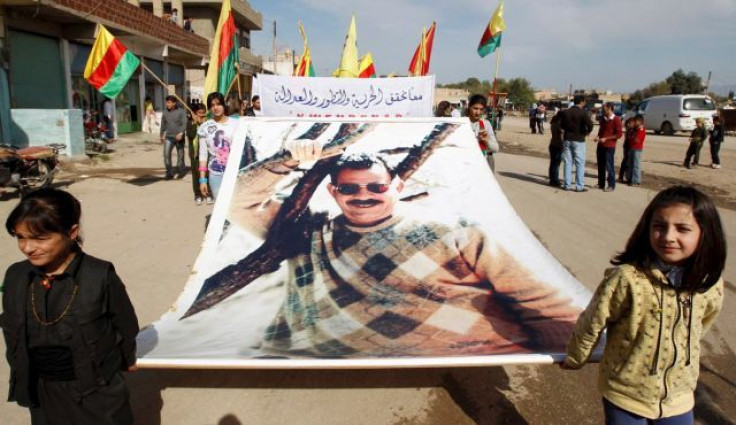Happy New Year: Kurdish Leader Öcalan Calls For PKK To Lay Down Arms, End War Against Turkey

Abdullah Öcalan, the imprisoned leader of the Kurdish Workers Party (PKK), has called on his militant organization to declare a cease-fire in its 30-year war with the Turkish state and withdraw its forces from Turkish soil.
The historic announcement on Thursday coincided with Nowruz, the Kurdish New Year festival.
In a statement read aloud in the Turkish language, by Kurdish politicians at a celebration before an estimated crowd of 250,000 in the southeastern city of Diyarbakir, Öcalan said: “Our fight has been against all kinds of pressure, violence and oppression ... A door is now opening on a democratic process after a period of armed struggle. Guns should fall silent and politics should come to the foreground. The stage has been reached where our armed forces should withdraw beyond the borders [of Turkey] ... It is not the end; it is the start of a new era.
"Today I [Öcalan] start a new process witnessed by millions of people. The period of democratic rights, freedom and equality starts. Let us silence the weapons. The bloodshed of the Turkish and Kurdish people will end. This is a process whereby Anatolian [Turkish] and Kurdish communities can live together peacefully ... We are shifting from armed struggle to democratic struggle."
English-language Turkish newspaper Zaman reported that the crowd in Diyarbakir held Kurdish flags and posters of Öcalan -- who they call "Apo" or "Uncle" -- but no Turkish flags were in evidence. Security is extremely tight at the festivities, it said.
The announcement wasn't entirely unexpected since Öcalan, who has been jailed at Imrali island prison since his capture in 1999, has been engaged in months of negotiations with both Turkish intelligence officers and Kurdish politicians, at the behest of Turkey’s Prime Minister, Recep Tayyip Erdogan.
Thousands of PKK soldiers are believed to be based in camps in northern Iraq from which they have periodically launched attacks on Turkish security forces across the border, but it's unclear if Öcalan’s proclamation will compel them to give up their weapons.
For Turkey, a settlement to the thorny Kurdish issue would be a boon on many fronts – not the least of which relates to Turkey’s long-held dream of joining the European Union. Turkey's accession to the EU has been blocked for various reasons, including its human rights record with respect to its Kurdish minority.
Since the war between the PKK and Turkey erupted in 1984, more than 40,000 people – mostly civilians – have died. The PKK had been agitating for an independent Kurdish nation carved out of the heavily Kurdish southeastern part of Turkey, as well as Kurdish enclaves in neighboring Iran, Iraq, and Syria.
In recent years, as Kurds in Turkey have gained increased political and civil rights, support for the armed struggle has waned. Consequently, the PKK itself has amended demands for independence to more autonomy for Kurds.
© Copyright IBTimes 2024. All rights reserved.











